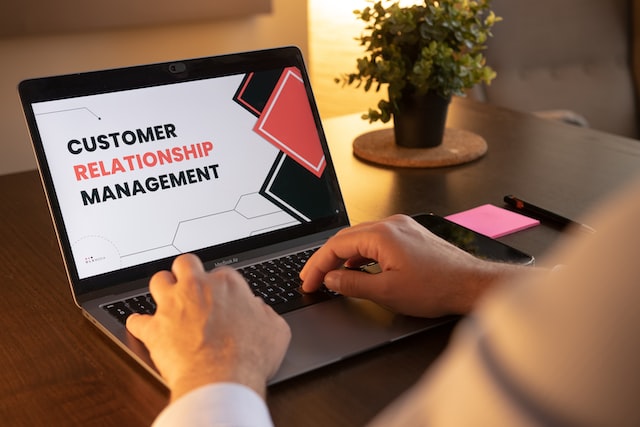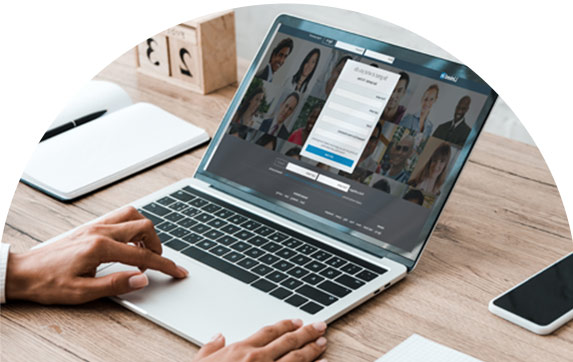What is Customer Relationship Management (CRM)?
CRM is the process of managing business interactions with both prospective and existing customers. Customer relationship management also refers to the strategies and approaches used to build, manage, and maintain customer relationships throughout the buyer’s journey. CRM also often refers to the software used to maintain these relations. These tools help companies analyze and organize data on customers to help them understand customer behaviour and how to maintain relationships with them.
Why you need CRM
CRM software comes in handy for various purposes in a company whether small or large. Here are a few reasons why a business needs a sound CRM system, regardless of company size.
- Automate tasks/reports and achieve higher productivity
You can use CRMs to automate day-to-day tasks to avoid burnout and maximize employees’ time. Daily tasks like data entry and record updates can be made less time-consuming and monotonous with the help of a sound CRM software system. Other activities that can be automated include campaign analytics, email sequences, chatbot conversations, and follow-up messages.
- Effective engagement at each customer touchpoint
Efficient CRM makes interacting with customers simpler. There are many ways to engage with leads and you can efficiently manage them with CRM by using emails, video calls, and live chats. Effective communication can also help build, nurture, and track potential customers in your sales pipeline from start to finish. CRM can provide data visualization for better insights. It’ll also provide better customer service when customers know they’ll always get a response to enquiries, leading to higher customer retention.
- Centralized data and detailed analytics
CRM systems databases provide a centralized location for customer data making it easier to analyze and create reports on consumer behaviour. Some CRMS allow dashboard customization, so you can organize it according to business needs, showing the most critical metrics. This information makes it easy to spot areas where your strategies yield results and other areas for growth.
- Optimize omnichannel strategies
CRM allows you to use multiple sales channels and deliver an experience where customers can seamlessly navigate from one channel to the other. By helping to keep customer information in one place, sales agents and marketing teams can share critical data. They can also update info in real-time, and see past purchases and interactions with your business across all channels.
This way, they know what to upsell to each customer to improve their buying experience by streamlining every stage of the buying journey. A smooth buyer journey ensures customer loyalty as customers don’t feel bounced around from one team to another.
- Leverage CRM Integration for social media (LinkedIn particularly)
Many businesses underestimate the benefits of integrating CRM into their social media marketing strategies. CRM can help you identify your top customers and similar audiences to target with improved marketing strategies.
Another way to engage with these audiences is by connecting on platforms like LinkedIn. There, you can create a system that encourages them to keep purchasing your offer. CRM also benefits social media marketing by providing insights into customer interests and behaviour. This helps the marketing team craft the perfect messaging to share on social media that’ll resonate with customers.
How to choose the best CRM software
Now that you’re familiar with how CRM software can benefit your business, it’s time to decide which one is best for your business needs. Here are a few things to consider as you choose CRM software.
What’s the implementation process and level of technical assistance provided?
This involves deciding what storage and protection process to implement. You can choose to deploy a cloud-based server where there’s no need for an in-house server, and there are fewer installation costs. All that’s needed here is to purchase the software and log in to begin using it.
You can also choose an on-site server that’s physically hosted in your location. Some businesses prefer this as it makes it easier to integrate with other applications and provides better security. On-site servers require technical expertise for maintenance, so it’s essential to know whether the CRM vendor provides this or if you’ll have to hire one.
Is the software easy to understand, and adopt internally?
Having a top-of-the-line CRM system and not knowing how to use it will do no good for your business. While shopping for CRM software, ensure you pick one that’s easy to get on board with. If it’s not, choose one where the specialists are available to train your staff. This’ll make for smooth adoption and increased efficiency. It should also complement your business needs, including your sales process, customer service activities, and marketing strategies.
The total cost of the software setup, additional features, users and integrations?
It seems like a no-brainer, but it’s essential to know the exact costs for your CRM (including additional features). In some cases, prices are on a subscription basis and may be confused with the purchase price, but buyers are unaware that additional integrations may cost them more. So, it’s essential to know all the associated costs of the software to ensure it fits in your budget and there are no unexpected charges later.
Can the API function with the existing software ecosystem?
This consideration is crucial for businesses that operate in niche markets. If you’re one of such businesses, look for CRM vendors that have worked with companies in your industry, so it’s not too tricky for their API to work with your current ERP and accounting software. Study their vendor’s website extensively, and look through their existing client portfolios to learn what types of companies they work with.
What security features are built into the software?
As safeguarding customers’ data becomes more important online, it’s essential to be sure your CRM software has robust security features to protect your business’s and customers’ information.
Scope of customization /can customers get personalized solutions?
Does the CRM allow your business to offer personalized experiences to your customers? Each customer has individual needs, and it’s been proven that providing a customized experience improves customer satisfaction and loyalty. Ensure the CRM you choose doesn’t offer just cookie-cutter solutions but allows you to use them for your unique needs. A good CRM software will enable customization with things such as workflows, entities, forms, and dashboards.
Can I test-drive a free trial?
CRM vendors’ offers may look good on paper, but testing them is essential. Try out a personalized demonstration where they walk you through its functionalities and how they’re used. Then request a free trial, so you can explore how everything works. You’ll also get a feel of whether or not it’s a good fit for you. Things to look out for include how easy it is to use, its features, and key functionalities.
Zopto’s LinkedIn targeting software easily integrates into multiple CRM systems to improve lead management. That’s one less thing to worry about, whether you have an existing CRM system or are shopping for a new one.
Our secure cloud-based system ensures you can access it from any device, and with three flexible pricing plans suitable for varying business needs. Contact us today to learn more about integrating our LinkedIn automation tool and customer success features into your CRM suite.

